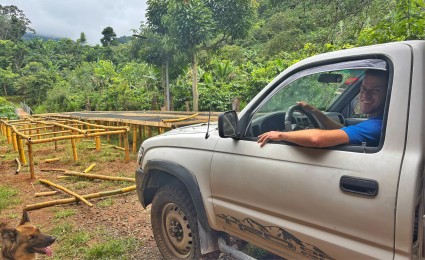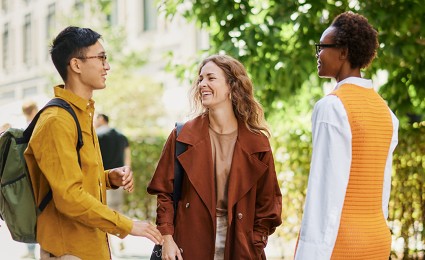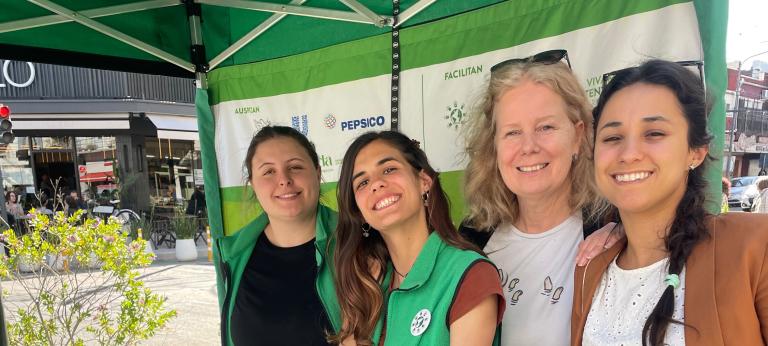

curious.
Kristina’s Social Fellowship: Driving environmental change in Buenos Aires
Hello, I'm Kristina from our Munich office, working in our internal sustainability team. Recently, I had the great opportunity to go on a three-month environmental social fellowship in Buenos Aires and would like to tell you more about it. I was motivated to embark on a Social Fellowship in Buenos Aires by my desire to gain a different perspective from my work in our internal sustainability unit. I wanted to contribute directly, on the ground, by engaging in tangible environmental work for a small foundation.
Having lived in Buenos Aires over 25 years ago, where I spent one year and met my husband, this opportunity felt like coming home. It allowed me to witness firsthand the difficult societal and economic situation that the country and the megacity of Buenos Aires are facing. But it also enabled me to reconnect with the lovely people there who manage their day-to-day lives, improvising and trying to get on in the best way possible.
The fellowship thus represented a unique chance to reconnect while making a meaningful contribution to the environmental landscape. It was an opportunity to blend my professional skills with a personal journey of rediscovery.
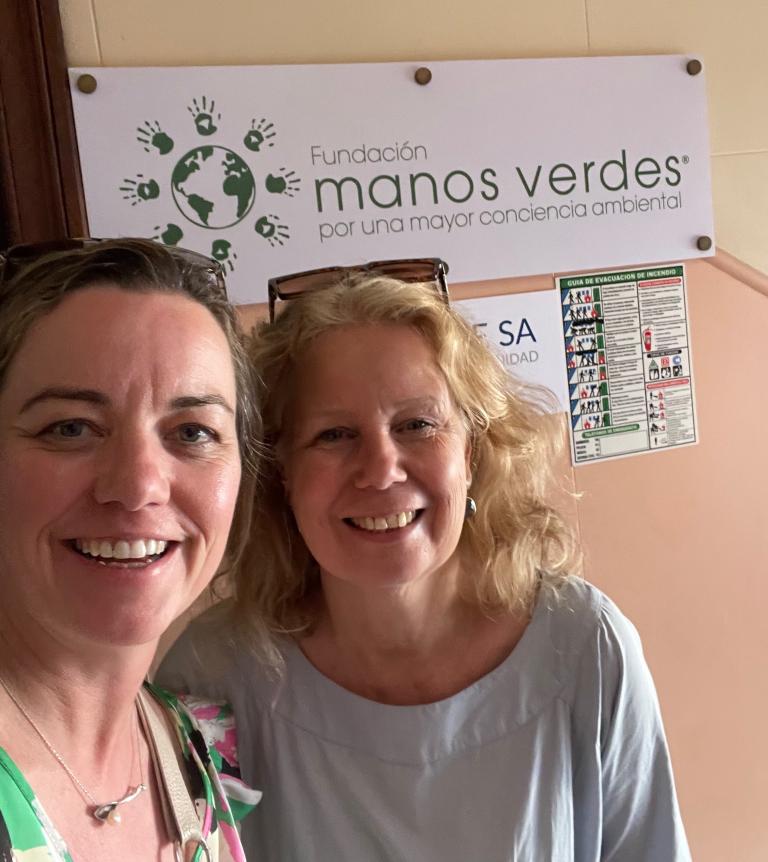
I decided to do my fellowship with the Fundación Manos Verdes, Manos Verdes – por una mayor conciencia ambiental. This foundation is based in Buenos Aires and has a tiny branch in Germany, which might give me an opportunity to stay in touch. Manos Verdes primarily focuses on promoting environmental education and sustainable practices within communities. Their initiatives aim to raise awareness about waste management, recycling, and the importance of preserving natural resources to foster a greener and more sustainable future.
During my fellowship, I supported two main projects: First, I was involved in organizing a climate action conference in Corrientes, a city located 1,000 km north of Buenos Aires. The conference brought together key figures responsible for climate measures from various cities, NGOs, corporations, and academic institutions. In the final weeks before the conference, our team was working under quite some pressure to ensure we got everything done and led our first regional forum to success. Our efforts paid off, as we achieved an impressive turnout of around 300 participants. This milestone is a significant success for our inaugural event. The presence of several mayors from key regional cities was particularly noteworthy. Their participation is crucial in providing the necessary impetus for climate action in the region, and we hope that this "Foro regional" was just the first in a future series. The event was set in an area renowned for its nearby wetlands – a wonder of nature with incredible flora and fauna that are extremely valuable and worthy of protection.
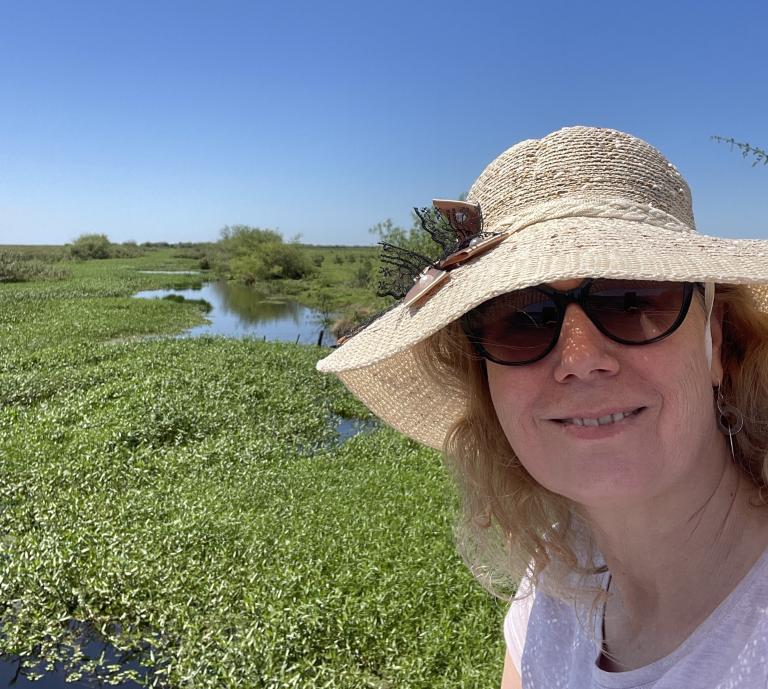
My second major task was initiating and launching a four-year-long circularity project aimed at developing a digital platform. This platform is designed to connect municipalities, companies, sustainability startups, and cooperatives of trash collectors to enhance recycling efforts in the Greater Buenos Aires area. Together with the team for this project I had a variety of tasks. They included, for instance, supporting the selection of a CRM system, searching for agencies to design a logo, engaging with numerous stakeholders, organizing workshops and round tables, and developing the vision and mission statement.
The most interesting part of this project, however, was visiting the recycling centers run by cooperatives and the large landfill that serves the entire Buenos Aires area. I gained a deep understanding of how people collect waste from city containers (leaving half of the garbage in the streets and taking everything of value in big bags or in hand-drawn carts), manually separate it in recycling centers, and sell the resulting materials to recycling companies. The sight of the leftovers from our daily lives, like plastic bags and bottle caps, holds a mirror to our faces and shows us what remains when we live our everyday lives carelessly. The landfill, on the other hand, surprised me at first glance with its cleanliness and seemingly good organization. Nevertheless, enormous hills rise up, growing daily, and serve as the final repository for all products that can no longer be recycled, except for the biogas produced from the decomposition of organic materials, which is converted to electricity. Hundreds of trucks drive in to deliver the approx. 22,000 tons of waste daily from an area with 17 million inhabitants. You can see a growing mountain on the horizon.
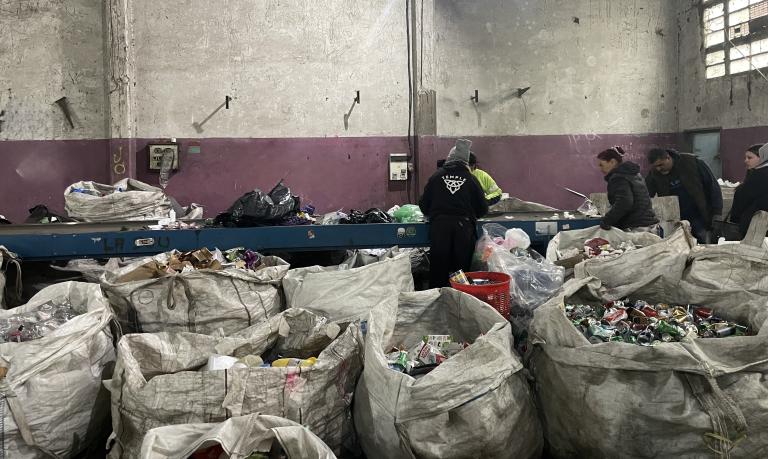
I was also impressed by the small team and especially by Verena Böhme as the founder, a German woman dedicated to the subject of the environment in Argentina, who welcomed me so warmly from the very first day and integrated me into the team – a small group trying to make a big impact. I greatly admire their commitment, and we can learn from them that everyone can make a difference and bring about change with their contribution. I am extremely grateful for having been given this unique opportunity!


